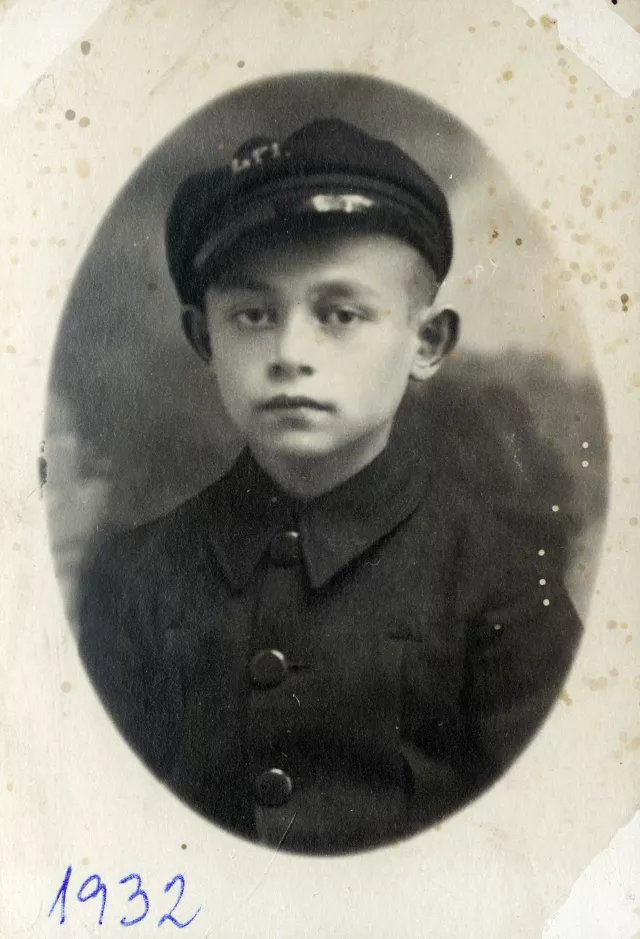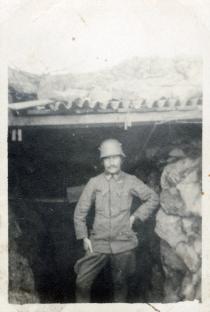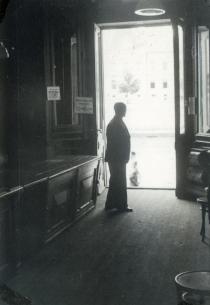Tibor Moskovits
This is my brother Tibor Moskovits. The picture was taken on 8th September 1932 in Marosvasarhely, most probably at the start of the school-year.
On this photo Tibor is in the first year of Papiu high school. We had to stick a photograph in his student's file - it was called 'carnet' in Romanian - and the picture in fact was made for the file.
Students had reduced fares, and we got a different booklet for it with a picture. We had three discount trips, and we could use them in the three vacations: the Christmas, the Easter and the summer holiday. I think we had a 50% discount.
Students had uniforms and uniform caps, it was inconceivable to dress the children casually, you had to strictly comply with these rules. My brother finished Jewish elementary school, just like me, and then he attended the Papiu high school.
There were several Jewish boys in his grade, but I don't know exactly how many. The numerus clausus hadn't came out yet, it was only adopted before World War II, in the 1940s, and then only a certain percent of students were allowed to be Jewish.
When he started high school, he was also studying the violin, and he also attended a music school.
My brother graduated from high school in 1939 or 1940. He finished Papiu Lyceum. The change took place when the Hungarian army arrived in early September 1940.
As a graduate he decided in the same year he would go to university. Those days there wasn't this throng for university that you see today; there was no matriculation, only registration.
Then he applied for three or four universities in Hungary, I don't know in which cities. He was rejected by all of them, so the Jews were already excluded. Sadly, we had to acknowledge this situation. And then, instead of being enrolled in the army, the poor thing was taken away to forced labor. Until then he used to tutor weaker students who needed tutoring in disciplines like mathematics.
In 1943 he was taken to forced labor to Palotailva [on the banks of the Maros River, 77 km from Marosvasarhely], but I don't know what kind of work they had to do there.
In March 1944 he was given a furlough, and came home for a few days, but then he had to go back. That was the last time I saw him. I don't know where he was taken, but on 23rd August 1944, when the war ended, he and one of his mates set off for home on foot.
In that period the Russians were taking away the German prisoners of war and everyone who could, fled from these columns. The Russians, though, had to account for a certain number of prisoners.
If people went missing along the way, they took people from the streets and put them in these columns so they could hand over as many people as they had taken on.
My brother and his friend almost got to Ernye [some 18 km from Marosvasarhely], or somewhere around there, but they met such a group, so they were taken prisoner by the Russians and sent to a camp in the Crimea.
Unfortunately this wasn't an exception, many others had fallen victim to such actions. I don't know what they had to do there, but my brother got typhus and passed away in January or February 1945, so he never came home.
This I know from his comrade, who eventually came home. (In 1999 I received 30,000 HUF [USD 120] from the Hungarian state as compensation for what happened to my brother.






























